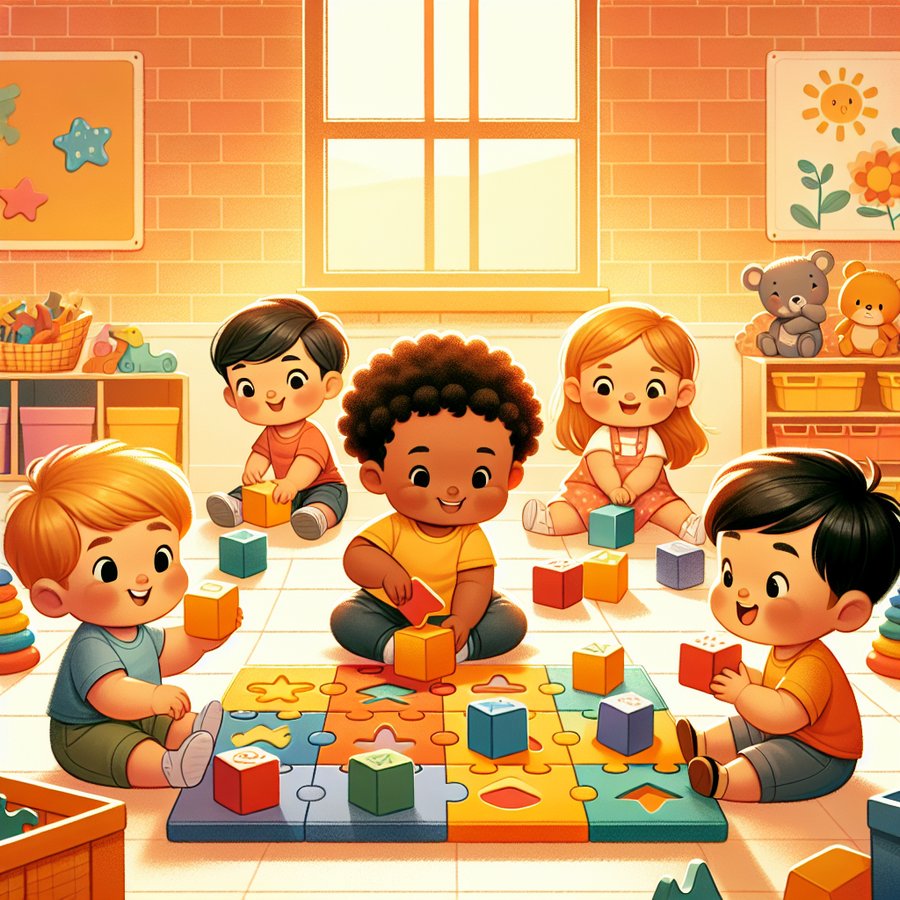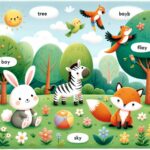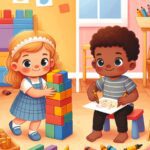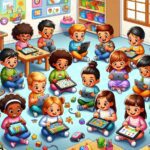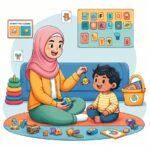Play-based learning concepts for toddlers are not just about having fun; they are a crucial part of child development, allowing little ones to explore, discover, and learn about the world around them in the most natural way. From enhancing language skills to fostering creativity and problem-solving, the impact of play-based learning is profound and multifaceted.
Understanding Play-Based Learning Concepts for Toddlers
At its core, play-based learning involves letting children lead their learning experiences through play. It blends children’s innate curiosity with structured learning objectives, creating a dynamic environment where toddlers can thrive. This method leverages the natural way children interact with their surroundings, making every interaction an opportunity for growth.
Implementing play-based learning does not mean leaving children to play unguided. Instead, it involves intentional planning and interaction that guides children through learning milestones in a fun and engaging way. By integrating these concepts, parents and educators can support toddlers’ holistic development, including language acquisition, social skills, and emotional regulation.
The Benefits of Play-Based Learning
Research has consistently shown that play-based learning concepts for toddlers offer numerous developmental benefits. These include improved language skills, better social interactions, enhanced creative thinking, and stronger problem-solving abilities. One of the key advantages is that it supports children’s natural learning processes, allowing them to explore concepts at their own pace in a stress-free environment.
Moreover, play-based learning fosters a positive attitude towards learning, laying the foundation for a lifelong love of discovery. By engaging in play, toddlers develop a sense of achievement and confidence that propels them to take on new challenges.
Play-Based Learning Concepts for Toddlers in Action
Incorporating play-based learning into daily routines can be simple and effective. Activities like block building, art projects, and pretend play not only keep toddlers engaged but also offer valuable learning opportunities that enhance cognitive and motor skills. For instance, a simple game of ‘pretend store’ can teach concepts of numbers, turn-taking, and social interaction.
For parents looking to enrich their toddler’s playtime, incorporating educational toys and resources that align with play-based learning principles can be incredibly beneficial. Choosing toys that support developmental milestones can create an enriching environment that stimulates growth and learning.
Understanding and integrating play-based learning concepts for toddlers into everyday life ensures that children not only learn effectively but also enjoy the process. By fostering an environment where curiosity and exploration are encouraged, parents and educators can provide a solid foundation for children’s future academic and personal success.
For further reading on how to support your toddler’s development, consider exploring resources on parallel play in toddler years, fostering creativity and imagination, and promoting empathy and social understanding. Each of these aspects plays a crucial role in the holistic development of toddlers through play-based learning.

